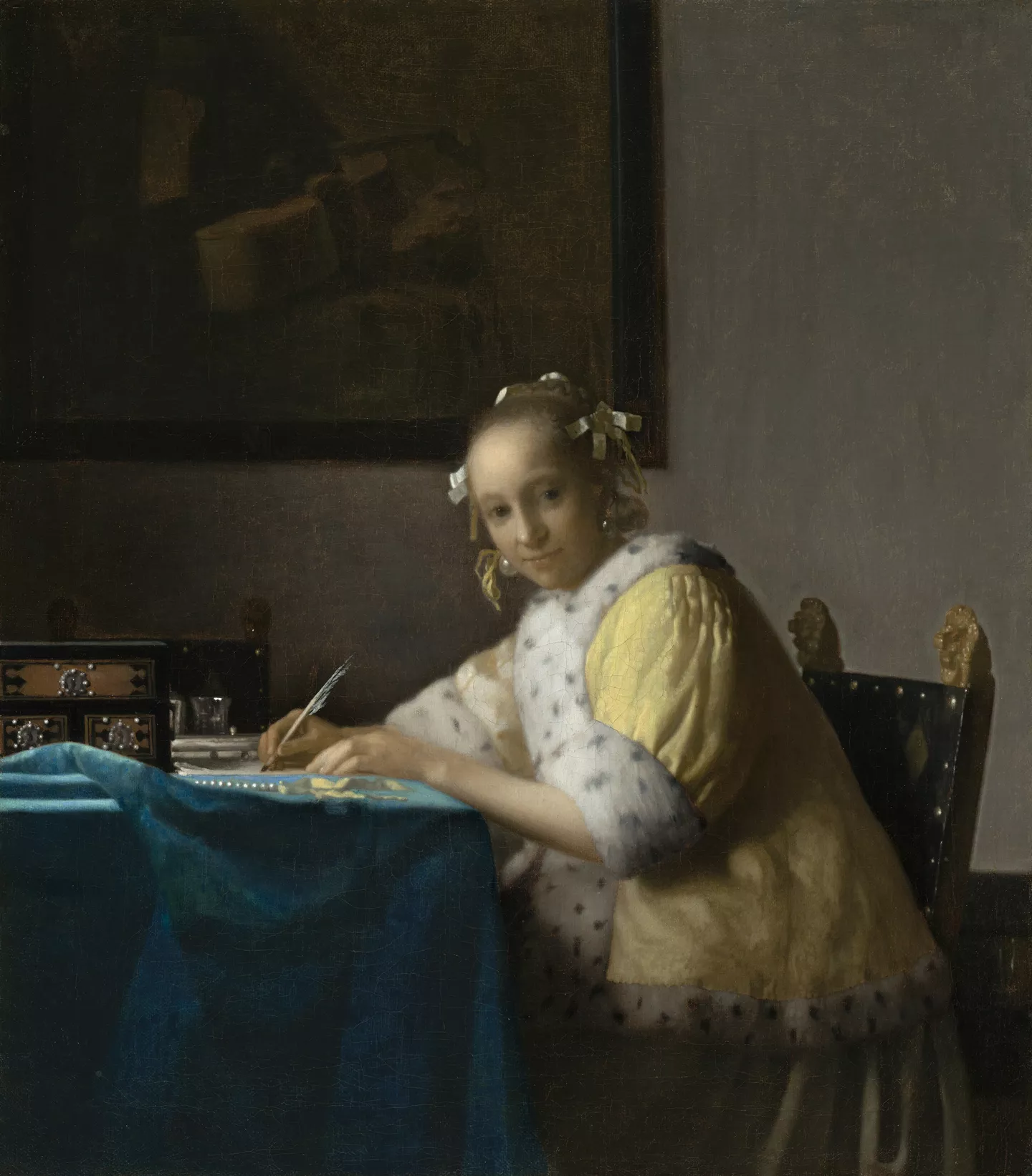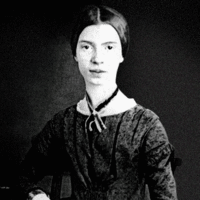
466 I dwell in Possibility
By Suzanne Juhasz
The enclosure experienced in the place of the mind, an enclosure that can mean confinement and internal strife, is established with an architectural vocabulary. Yet those same windows and doors can as well outline the spaciousness that only the imagination can create, reminding us once again of the power that is derived from the cultivation of consciousness...
At first glance this poem may appear not to be about the mind; because although the place where the speaker lives, Possibility, is definitely a house, its chambers are "as the Cedars," its roof "the Gambrels of the Sky." However, it would be wrong to assume that this house is the house of nature. Rather, the poem is explaining that the imagination can be as vast as the subjects of its speculations. The language building this house attests to its figurative construction. Its rooms are not cedars but like cedars—solid, "Impregnable of Eye." Its roof is as high as the sky. The sky has, literally, no gambrels; but if one were to imagine a roof-like sky, then that would be the room of this house.
This house is "Possibility," the imagination. Dwelling there, the lady of the manor makes not cakes but poetry. Possibility becomes associated with poetry in stanza one, when it is contrasted with its opposite—not impossibility, but prose. Thus, the occupation of she who lives in the mind, the spreading wide her narrow hands "to gather Paradise," may be interpreted as the creation of poetry. Paradise is the farthest space conceivable, and the mind can expand to include it. When this happens, because of the power of the imagination, the "housewife" can be a poet.
note|From The Undiscovered Continent. Indiana University Press, 1983. Copyright © 1983 by Suzanne Juhasz.By Mutlu Konuk Blasing
Dichotomy not only informs Dickinson's themes but structures her rhetoric and form. To begin with, the brevity of her poems sensitizes us to the minutest literal details of her language by juxtaposing material or quantitative limitation with semantic, metaphoric, or qualitative expansion. "I dwell in Possibility— / A fairer House than Prose" (P-657) is the manifesto of this poetic, which stages the logic of poetic language. "Dwelling" in "possibility" both separates and joins the determined and the indeterminate, limitation and freedom, houses and nature, closure and expansion. Dickinson presents poetry as a house of words that closes to open and—as "spreading wide my narrow Hands / To gather Paradise" suggests—opens to close. Prose, by contrast, is simply closed:
As when a little Girl
They put me in the Closet—
Because they liked me "still"—
Prose cannot sustain a dialectic of limitation and freedom, because such a dialectic is generated by playing formal elements, which emphasize the letter, against figurative features. And the same dialectic operates within metaphor itself, for describing one thing in terms of another constitutes a mutual redefinition that simultaneously limits and liberates. To describe a house as nature, for example, is to blow it apart:
Impregnable of Eye—
And for an Everlasting Roof
The Gambrels of the Sky—
Yet this description also defines and delimits nature as a house. For Dickinson, poetic language exposes the coeval emergence of the literal and the metaphorical, the material "seen" and the nonmaterial "unseen," the letter and the breath or spirit; in other words, she lays bare the logic of the Logos.
note|From American Poetry: The Rhetoric of Its Forms. New Haven: Yale UP, 1987. Copyright © 1987.



















